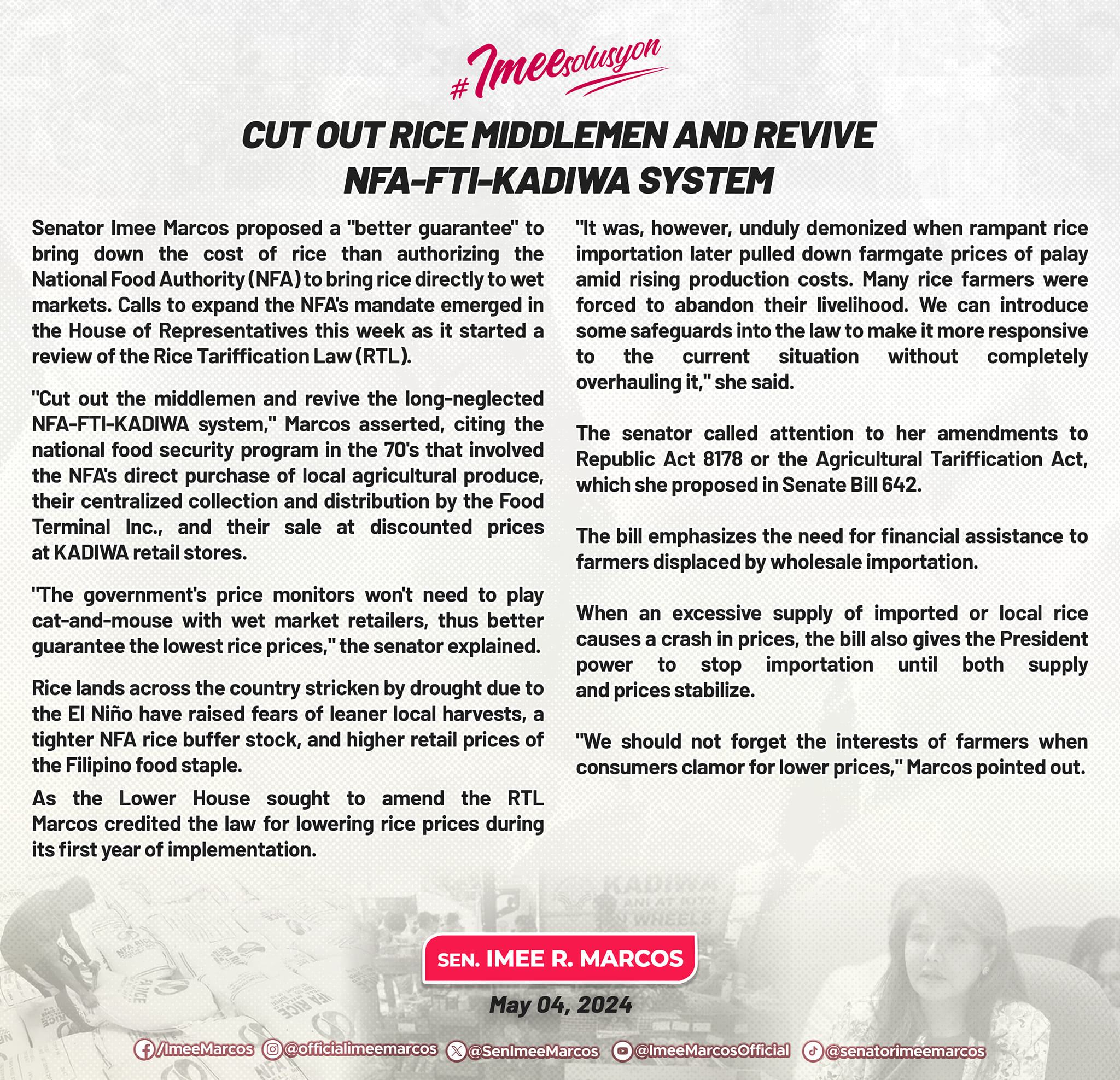
MANILA, Philippines – Senator Imee Marcos proposed a “better guarantee” to bring down the cost of rice than authorizing the National Food Authority (NFA) to bring rice directly to wet markets.
Calls to expand the NFA’s mandate emerged in the House of Representatives this week as it started a review of the Rice Tariffication Law (RTL).
“Cut out the middlemen and revive the long-neglected NFA-FTI-KADIWA system,” Marcos asserted, citing the national food security program in the 70’s that involved the NFA’s direct purchase of local agricultural produce, their centralized collection and distribution by the Food Terminal Inc., and their sale at discounted prices at KADIWA retail stores.
“The government’s price monitors won’t need to play cat-and-mouse with wet market retailers, thus better guarantee the lowest rice prices,” the senator explained.
Rice lands across the country stricken by drought due to the El Niño have raised fears of leaner local harvests, a tighter NFA rice buffer stock, and higher retail prices of the Filipino food staple.
As the Lower House sought to amend the RTL, Marcos credited the law for lowering rice prices during its first year of implementation.
“It was, however, unduly demonized when rampant rice importation later pulled down farmgate prices of palay amid rising production costs. Many rice farmers were forced to abandon their livelihood. We can introduce some safeguards into the law to make it more responsive to the current situation without completely overhauling it,” she said.
The senator called attention to her amendments to Republic Act 8178 or the Agricultural Tariffication Act, which she proposed in Senate Bill 642.
The bill emphasizes the need for financial assistance to farmers displaced by wholesale importation.
When an excessive supply of imported or local rice causes a crash in prices, the bill also gives the President power to stop importation until both supply and prices stabilize.
“We should not forget the interests of farmers when consumers clamor for lower prices,” Marcos pointed out.
Share
